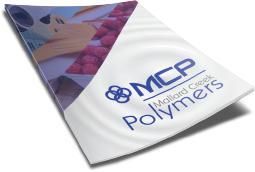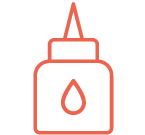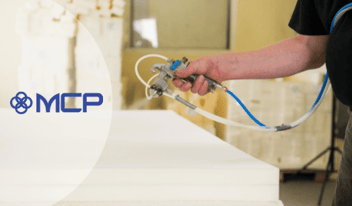
Introduction to Chemical Saturants: Enhancing Performance Across Applications
Saturants are a class of polymer emulsions used to increase the strength and water or chemical resistance of a substrate, like paper. You could be wearing an item right now that was produced by saturation. The artificial leather tags that appear..
Saturants are a class of polymer emulsions used to increase the strength and water or chemical resistance of a substrate, like paper. You could be wearing an item right now that was produced by saturation. The artificial leather tags that appear above the back pocket on many jeans are produced using a saturation process, as are many shoe insoles. One of the most common saturated products, masking tape, starts as a simple crepe paper. It is transformed, via saturation, into varying types of masking and painter’s tapes. The saturation process and polymers are modified to achieve the desired properties, like adhesion, tear-ability, flexibility, conformability, and resistance to high surface temperatures, for example. When you consider the range of tapes available and their individual properties, you can start to understand the versatility of saturated products.
This blog will briefly review the many types of saturated products that are part of our everyday lives, explain how saturated products like masking tape are made, the properties conferred by saturants, and how MCP partners with companies to provide specialized saturants to meet their specific needs.
What Kinds of Products Benefit From Saturants?
Saturants are an essential component in the production of a wide range of consumer and industrial products. Many of these products are hidden in plain sight. In the same family as masking tapes, sandpapers, and grip tapes, like you’d find on skateboards, stair treads, boat decks, and airplane wings, are saturated papers. Luggage tags and dust-free and waterproof labels used in laboratory settings are also produced with saturants, as are laminates used for furniture and paper used to create wallpaper. In the automobile industry, saturants are used in decal masking for truck and auto wraps and, in specialized processes, to make friction papers for transmission clutch plates.
How Are Saturated Paper Products Made?
Manufacturing processes for saturated products vary widely, but the example of masking tape (see diagram) illustrates a common method. The tape backing is usually made of crepe paper to which the adhesive is applied. A release coat (the outside of the tape) allows the tape to easily be peeled off the roll. By itself, the paper isn’t particularly strong. To make a tape with desired durability, the paper is completely saturated, or exposed on all sides, in a polymer emulsion. This method confers more robust properties than can be achieved via traditional polymer coating methods.
.png?width=3292&height=1876&name=230502-MCP-MaskingTape-Saturation-Diagram%20(1).png)
To perform saturation, the paper is fed from a roll into a specialized coating machine, where it is briefly saturated in the specialty polymer. This can happen by passing the unrolled paper through a tank and then through a series of pressurized rollers to “squeeze” and remove the excess saturant to achieve the desired coating. The product is also exposed to drying ovens, passed through chilling rollers, and eventually rewound. Additional finishing steps can include slitting to the desired width and printing. The type of saturant used, how long the paper is exposed to it, and the pressure applied by the rollers affect the properties of the end product.
What Properties Can Saturants Confer?
Saturants are useful in a wide variety of products because they are so versatile. The main benefits gained from saturated products are increased internal wet and dry strength and the ability to hold up to conditions like excessive light, heat, and moisture. Saturants may also provide additional resistance to tearing, increase a material’s folding endurance, provide extra flexibility, and protect against abrasion and exposure to some oils and solvents.
Meeting the varied performance requirements can mean balancing opposing properties. For example, masking tape should have some resistance to tearing, but it must also be easy to rip by hand to separate an individual piece of tape from the roll. In auto and decal masking, the tape needs to both resist solvents and provide clean removal. Saturants can be customized to suit specific needs.
Saturants are used to impart a wide variety of properties, to enhance the performance of end products. These properties include:
- Wet and Dry Tensile Strength
- Tearing Strength
- Folding Strength
- Bursting Strength
- Flexibility
- Abrasion Resistance
- Solvent and Grease Resistance
- Water Resistance
- Heat Resistance
- UV Resistance
- Printability
Performance Testing
MCP specialists perform rigorous tests to evaluate how their products perform with regard to each of the above properties. Their applications testing labs are equipped to precisely measure several factors and compare these properties across the MCP product portfolio.
For example, testing includes:
- Tensile strength and elongation are tested according to the American Society for Testing and Materials’ (ASTM) Standard Test Method for Breaking Strength and Elongation of Pressure-Sensitive Tape (ASTM D3759/D3759M-05).
- Folding endurance is tested according to TAPPI’s T511 folding endurance of paper test.
- Tear resistance is tested according to ASTM’s Standard Test Method for Internal Tearing Resistance of Paper (D689-17).
MCP’s Saturant Portfolio
MCP offers a wide range of emulsion polymers for versatile saturant applications. These include styrene-butadiene emulsions, styrene-acrylics, pure acrylics, and acrylonitrile-butadiene latexes. Each product has strengths and potential weaknesses. For example, although styrene-butadiene offers good performance at a relatively low cost, it may be vulnerable to yellowing when exposed to UV light without specially formulated additives. For outdoor applications, styrene-acrylics and pure acrylics confer the same strength but are less prone to discoloration. For applications where high-heat or solvents are a factor, like the friction papers mentioned above, an acrylonitrile butadiene latex is recommended. We know that cost is an important consideration for our customers. Therefore, as monomer pricing fluctuates, we can work with customers to meet their needs with alternative options.
Our Saturants Selection Guide is available on request to assist customers in identifying the appropriate saturant for their needs.
Customer Service + Collaboration = Better Products
MCP prides itself on being a leader in customer service and collaboration, with chemists who possess deep knowledge of our products and understand our customers’ needs. With this combined insight and expertise, plus a nimble operation, MCP can provide a relatively quick turnaround time and work with customers to customize polymers that meet their unique needs. This means, for example, developing polymers that will work with the customers’ machinery and meet their specific requirements.
If needed, the company can pilot a new product quickly and adjust properties as needed, based on regular communication and close collaboration with the customer. Our experts conduct progressively longer trials until a product is officially qualified for its end-use application. Collaboration is key as we work together with customers’ R&D teams to develop new or improved applications and processes as needed.
Your Saturants Solution Provider
Saturants are a critical component in the production of various industrial and consumer products. Their ability to enhance product performance and improve properties such as wet and dry tensile strength, tearing strength, and water resistance make them essential ingredients in many manufacturing processes. MCP’s range of polymers for saturants and our focus on customer service means that you gain a reliable partner when you are considering how to enhance your product’s performance.
To learn more about MCP’s saturants, request the Saturation Guide. Or contact us today to speak with a saturant expert. We’re here to help you find the best product to meet your unique needs.

 Construction
Construction
 Nonwovens
Nonwovens
 Adhesives
Adhesives
 Textiles
Textiles
 Printing & Packaging
Printing & Packaging
 Paper
Paper
 Paints & Coatings
Paints & Coatings





